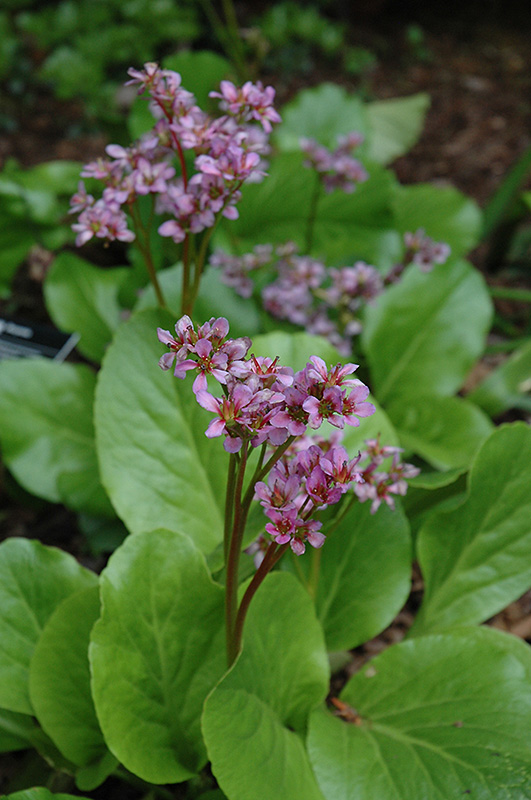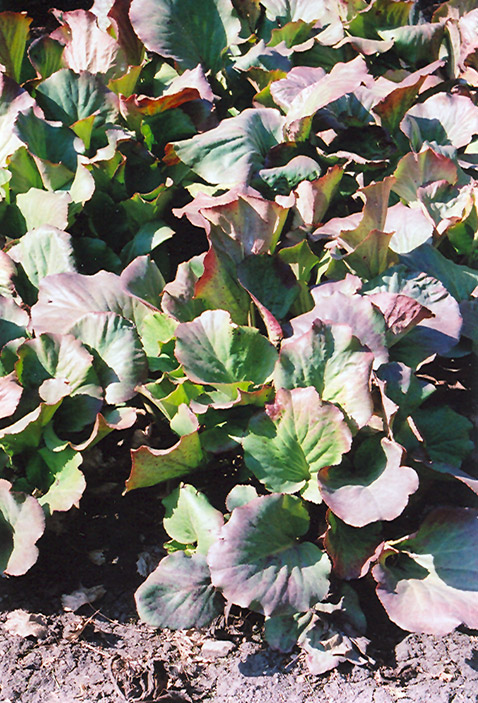
Plant Finder
Height: 15 inches
Spread: 18 inches
Sunlight:
![]()
![]()
Hardiness Zone: 1
Description:
A low growing, shade loving selection that requires little maintenance; interesting foliage, from red and purple to green, adding intrigue to gardens from spring to fall; clusters of small fuchsia flowers rise above from mid to late spring
Ornamental Features
Purpleleaf Bergenia features unusual cymes of fuchsia flowers rising above the foliage from early to mid spring. Its attractive large glossy oval leaves emerge brick red in spring, turning dark green in colour with curious dark red undersides. As an added bonus, the foliage turns a gorgeous dark red in the fall.
Landscape Attributes
Purpleleaf Bergenia is an herbaceous evergreen perennial with a ground-hugging habit of growth. Its wonderfully bold, coarse texture can be very effective in a balanced garden composition.
This is a relatively low maintenance plant, and is best cleaned up in early spring before it resumes active growth for the season. Deer don't particularly care for this plant and will usually leave it alone in favor of tastier treats. It has no significant negative characteristics.
Purpleleaf Bergenia is recommended for the following landscape applications;
- Mass Planting
- Border Edging
- General Garden Use
- Groundcover
Planting & Growing
Purpleleaf Bergenia will grow to be about 12 inches tall at maturity, with a spread of 18 inches. Its foliage tends to remain dense right to the ground, not requiring facer plants in front. It grows at a medium rate, and under ideal conditions can be expected to live for approximately 10 years. As an evegreen perennial, this plant will typically keep its form and foliage year-round.
This plant does best in partial shade to shade. It is very adaptable to both dry and moist locations, and should do just fine under typical garden conditions. It is considered to be drought-tolerant, and thus makes an ideal choice for a low-water garden or xeriscape application. It is not particular as to soil type or pH. It is highly tolerant of urban pollution and will even thrive in inner city environments. This species is not originally from North America. It can be propagated by division.
This Plant Library is intended for informational purposes only, and is not an online store.

